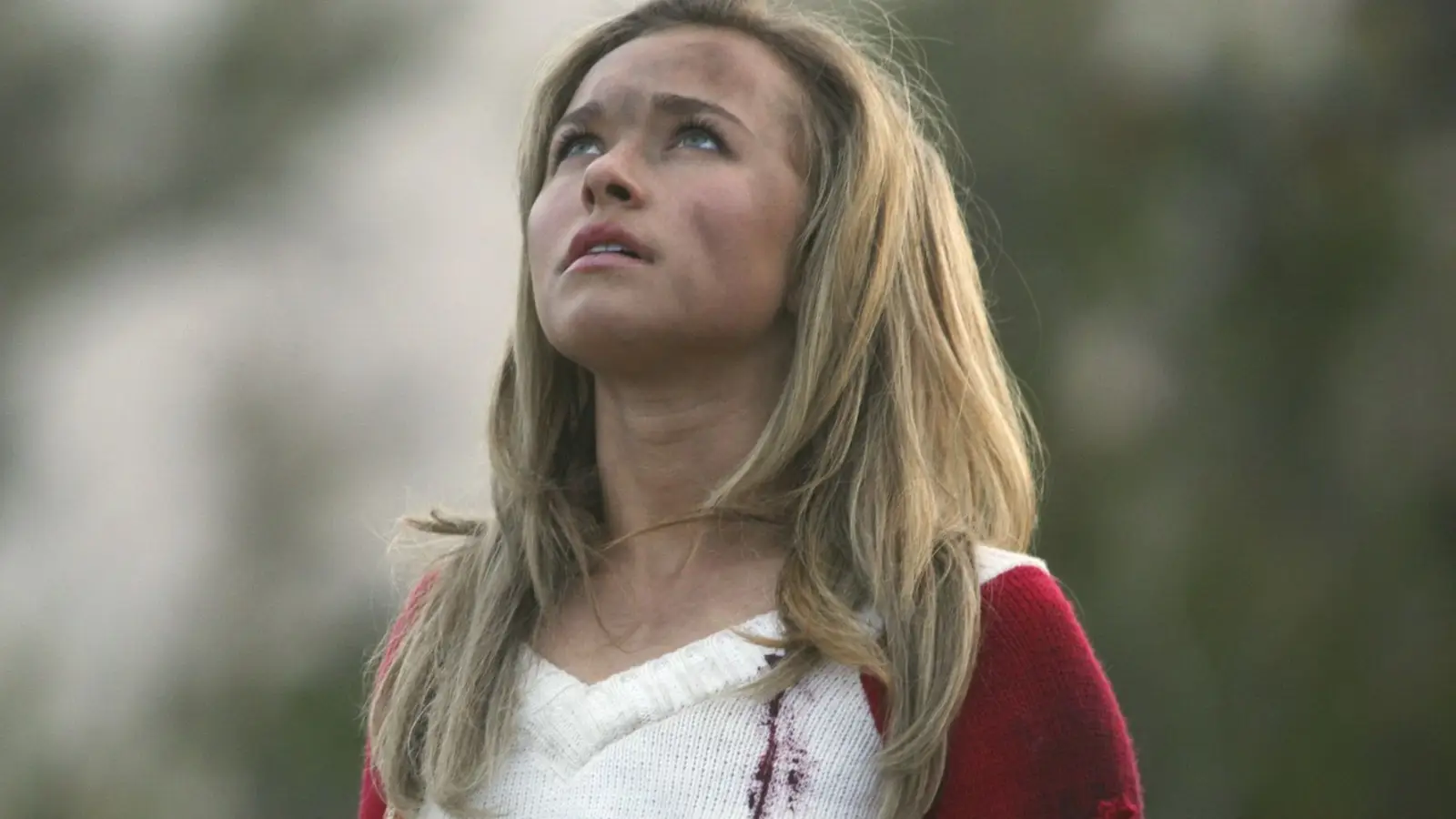
Some sci-fi shows arrive with a charge of possibility that feels limitless, with concepts that spark curiosity. But also urgency, the sense that we’ve glimpsed the edge of excellent TV lore and worldbuilding. Yet the same ambition that ignites them can quickly calcify, as mysteries stretch thin or pivots abandon the very hook that made them magnetic.
The disappointment is usually about the breakdown of trust, that important agreement between creator and audience. If a promising premise slips into repetition, convolution, or drifts aimlessly, then what remains is merely the residue of a great idea. It’s still visible, but no longer event viewing. Most of these shows were supposed to be huge but failed despite strong starts, reaching that point faster than they should have.
Lost
2004–2010, 6 Seasons
When Lost moved the island and introduced time flashes, the show dipped into territory that strained its own logic. The frozen Donkey wheel, the purple-white flashes, and the Dharma 1970s were all interesting, but it stacked more unsolved mysteries upon a show that had yet to deliver answers to its earlier promises. Lost remains one of my favorite shows of all time, but even I have to admit where it jumped the shark.
Season 5 was still strong, and I’ll never forget the cliffhanger to that explosive finale, yet the confusion still crept in. What began as an intimate exploration of survival and flashbacks that explored the ensemble’s grief began to dissolve in lieu of more mystery boxes. Time travel became less a narrative breakthrough than a burden, draining the show’s momentum with every leap, and was even more worrying knowing that only one more season could wrap it all up.
The 100
2014–2020, 7 Seasons
The first season of The 100 thrived on immediacy—one hundred delinquents thrust back onto a ruined Earth, survival stripped to its bones. But by the time the show reached Sanctum and the Primes, its sharp focus had scattered. The story leaned into body-snatching lore and cycles of violence that felt detached from its primal hook.
Fan trust cracked earlier during season 3’s Lexa death, it was one of the most heartbreaking losses on The 100 that left a gaping wound that couldn’t be bandaged. From there, the series leaned harder into moral resets and heavy-handed twists, and by the finale, Clarke’s arc ended not with survival on Earth but with an alien test of humanity’s worthiness to “transcend.” It was a cosmic detour that undercut the grounded stakes the show was built on.
Westworld
2016–2022, 4 Seasons
HBO’s Westworld launched by marrying existential questions with a tightly wound park setting. Season 1 worked because the loops were carried real consequences, tethered to characters gaining slivers of awareness. But as the later Westworld seasons expanded into future dystopias, the once-bracing disorientation was just fatiguing. The tricks grew louder while the emotional throughlines thinned.
The creators promised a five-season arc, yet by season 3 the show felt like it had hollowed out its soul. Ratings dwindled as puzzles outpaced its narrative momentum, and HBO canceled after season 4. But let’s face it: Westworld’s problems started years earlier. Its ambition was undeniable, but the series collapsed under its own machinery. For a show about hosts breaking loops, it became trapped in one of its own design.
Under the Dome
2013–2015, 3 Seasons
Adapted from Stephen King’s novel, Under the Dome landed with a killer premise for network television: a small town trapped under an invisible barrier, cut off from the world. The first season carried real promise, a summer phenomenon that drew tens of millions. But rather than resolve its premise, the show inflated it, deviating from the source material and building out mythology with alien kinships, glowing eggs, and cliffhangers that bordered on incoherent.
Stephen King’s reaction was telling, claiming that Under the Dome had gone entirely off the rails. Unfortunately, later seasons leaned deeper into arbitrary twists, and the dome’s logic grew thinner by the week. CBS eventually canceled after three seasons, and what could have worked as a tight miniseries unraveled into mere spectacle without coherence.
Heroes
2006–2010, 4 Seasons (plus 1 revival season in 2015)
Few genre shows ever caught fire like Heroes season 1, and for good reason—it was awesome. Its tagline, “Save the cheerleader, save the world,” gave the story a chanting pulse, and its ensemble of ordinary people discovering extraordinary abilities felt both sprawling and grounded. But by season 2, the energy had fractured. Creator Tim Kring even issued a midseason apology, acknowledging that the narrative had gone astray.
The problems were deeper than one bad year. Later arcs repeated conflicts, reset character growth, and piled confusing lore onto shaky ground. Ratings collapsed from over 17 million in its early run to just 4 million by season 4, and the attempted revival Heroes Reborn ignoring the original characters only underscored the fatigue. A show that once felt limitless had burned through its promise in record time.
Falling Skies
2011–2015, 5 Seasons
Falling Skies opened with so much urgency as a gritty, survivalist take on an alien invasion, bolstered by Steven Spielberg’s producer stamp. Its premiere instantly felt like a show for lovers of the Alien franchise and immediately positioned TNT as a contender in the genre space. Yet by its third season, the clarity was fading. It became repetitive, boring us with too many filler arcs and detours that stalled the insurgent edge of the early years.
As the mythology expanded with Volm alliances, mutant hybrids, and even Noah Wyle’s daughter turning into a half-alien messiah, the survival hook became secondary to expanding it with too much lore. By the final season, episodes often felt like treading water until TNT gave it a definitive end, but by then the urgency had ebbed. What started as a sharp human fight for survival drifted into cluttered alien pageantry.
Revolution
2012–2014, 2 Seasons
The blackout premise of Revolution was tailor-made for a killer sci-fi premise: a world stripped of electricity, survival dependent on ingenuity. Its premiere was NBC’s biggest drama launch in years, drawing almost 12 million viewers, yet the momentum didn’t last long. The series shifted from grounded survival into nanotech conspiracies and operatic battles, moving further from the visceral stakes it began with.
Showrunner Eric Kripke openly admitted that season 1 misfired, and while season 2 attempted a course correction, moving to Austin and refocusing the tone, the spark had dimmed. It NBC canceled after season 2, and Warner Bros. quietly closed the story in a digital comic. An engrossing premise that should have built upon itself instead collapsed into over-engineered plotting.
Terra Nova
2011, 1 Season
With dinosaurs, a fractured future, and a time-rift colony, Terra Nova had all the makings of a TV show better than any blockbuster sci-fi movie. FOX invested heavily, and the first season averaged more than seven million viewers. But all of that glitzy spectacle masked a hollow core. In a weird twist, Terra Nova leaned harder into family melodrama than into the wild possibilities of its setting.
The tension never matched the world it built. Episodes often played as mid-tier procedurals, where the dinosaurs felt like backdrops instead of living threats. FOX canceled after just one season, citing costs and middling returns. The show promised prehistoric wonder but delivered conventional network drama, and was an expensive reminder that high concept needs more than a striking backdrop.
The Event
2010–2011, 1 Season
The Event was marketed as TV’s next Lost, opening with political intrigue, aliens hiding among us, and a heavy dose of fractured chronology. Nearly 11 million tuned in for the pilot for that promise, but the mystery proliferated without any meaningful payoff, stretching itself thin across time jumps and nested revelations. The characters rarely anchored the puzzle, leaving viewers chasing a structure instead of a story.
The show’s hiatus proved fatal, bleeding nearly a third of its audience before the spring return. When it closed, it left viewers with a cliffhanger: an alien planet suddenly in Earth’s orbit. The shock was less thrilling than wearying, a symbol of narrative debt unpaid. NBC canceled after one season, confirming that intrigue without grounding wears out fast.
FlashForward
2009–2010, 1 Season
Few shows arrived with more anticipation than FlashForward. A global blackout, visions of the future, and, once again, ABC branding FlashForward as the next Lost gave the pilot a massive 12 million viewers. Understand, too, that this aired during Lost’s last season. But sustaining a weekly drama on a single inciting incident proved impossible. Showrunner shakeups and a long hiatus fractured momentum further, and the story bogged down in exposition-heavy recaps instead of propulsion.
The promise of inevitability became the burden of stasis. Episodes circled their own premise instead of building beyond it, and critics noted the drag by midseason. Ratings collapsed, falling to less than half of the premiere audience, and ABC canceled after one year. In the end, the blackout was less a vision of television’s future than a cautionary glimpse of its limits.



